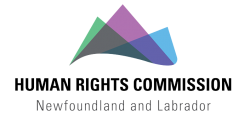The human rights complaint process may not be right for everyone or every situation. We know that justice looks different to everyone and that there are other ways to handle conflict. The Commission focuses on using people’s strengths, building relationships, and finding solutions. During a pre-complaint resolution, we contact the other party to try to resolve the issue before it becomes a formal complaint.
When is Pre-Complaint Resolution Offered?
We offer pre-complaint resolution based on what happened and our capacity. It works well when:
- it appears that we have the power to act (a legal term known as jurisdiction)
- the people have an ongoing relationship, or they want to move forward on their own, but in a healthy way
- the people involved are committed to resolving the problem in creative ways
- the people involved don’t want to fight about what happened
- the people involved agree to talk and move quickly
The Role of the Commission
We can’t tell you what to do or give you legal advice. Instead, we can listen, talk about options and help generate ideas. We can get the people to work together or do it separately. For example, we can meet with each party individually and pass information back and forth or bring people together and help facilitate conversation. We can also help:
- Find a reasonable accommodation
- Help build or re-build relationships
- Provide conflict coaching or system navigation
- Discuss ways to advocate for yourself
- Deliver training sessions
- Develop public education resources
- Review policies and procedures
- Connect people with others to work on lasting change
Finding Solutions
Success can mean different things to different people. If a reasonable solution is not found, we will review the information gathered and reassess whether we can move forward with a human rights complaint.
